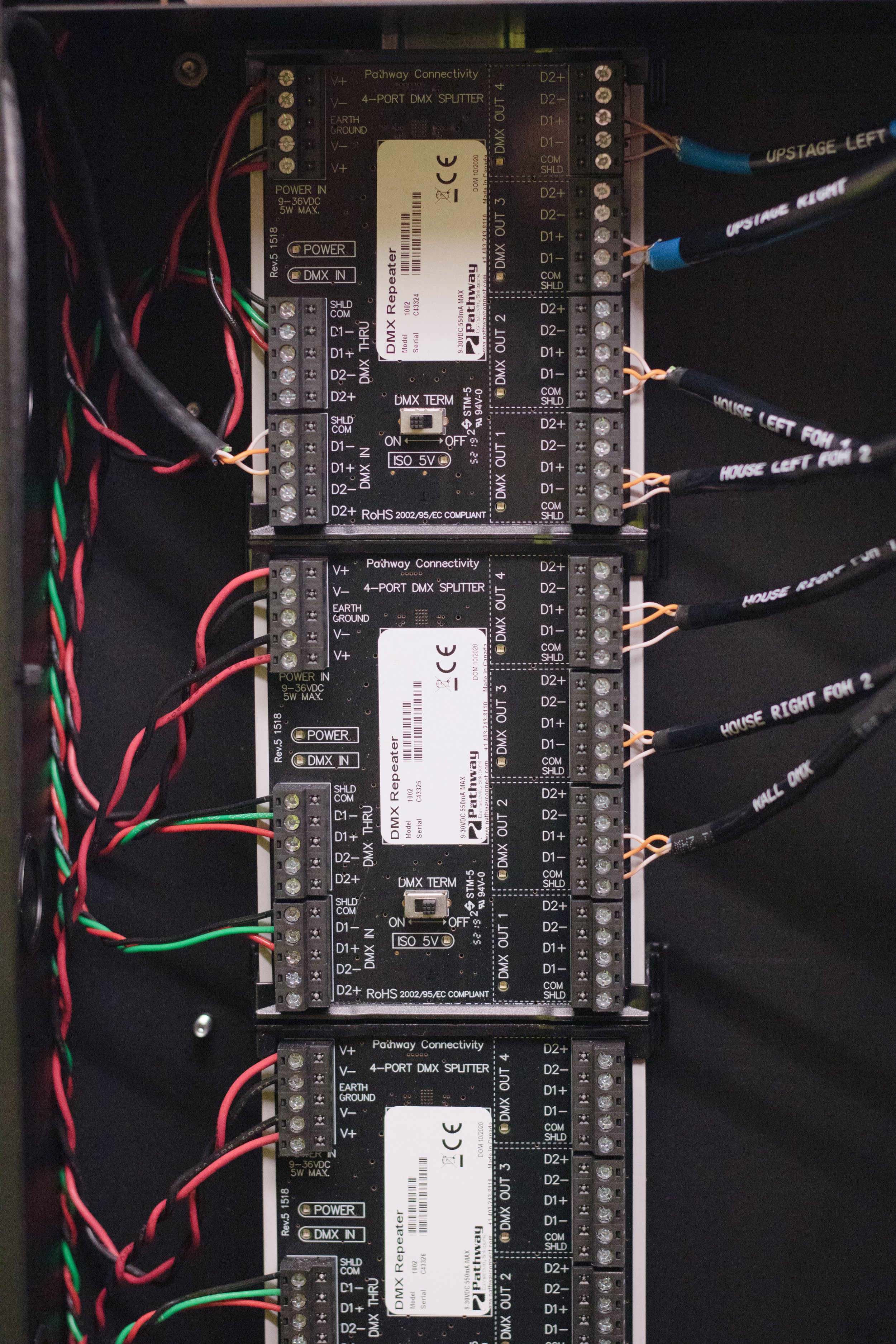What electrical work can (and can’t) I do in my own building?
I thought it might be helpful to share some of the tidbits of information I’ve learned over the past 18 years as an installer and Master Electrician with the State of Washington. Lots of venues, especially non-profits, have been trying to figure out more cost-effective ways to get their installations done, and I’ve had to do huge amounts of research into this subject as a qualified installer helping them figure it out. This article does not constitute legal advice, and you should check with the Department of Labor & Industries if you have questions. Most of the businesses I’ve talked to about this just assume that they’re ok to do the work without ever checking, but as we’ll see, that can be a costly mistake.
This blog will cover electrical installations for things like audio, lighting, and video. We will not cover rigging, which, oddly enough, doesn’t require much for licensing. However, the liability involved in rigging implies that you shouldn’t hang things without consulting with someone who has experience doing so. Check out my blog on rigging for more information.
The laws in Washington State have changed over the years. It used to be that you could have volunteers help with electrical work, like pulling speaker wire in a building, but that is no longer the case. If you are the owner or lessor of the property you want to do electrical work in, you and your regular full-time employees are allowed to do so without having to have an electrician or electrical license involved. However, you will still have to pull a permit for the work, follow the applicable National Electrical Code, Revised Code of Washington, and Washington Administrative Codes and have everything inspected.
What constitutes electrical work? Everything with wiring. It’s not just wiring up outlets or light switches; it’s any wiring, including speakers, microphones, DMX, Cat6, and more. And it’s not just the pulling of the wire that counts; terminating cables constitutes electrical work. Even temporary cables are considered electrical work and must follow the same rules.
As the owner or lessor of the property, if you hire a vendor to install anything, you are required to make sure the vendor is licensed to do the work. Plugging equipment into existing electrical connections, as long as the device is “cord and plug” connected, doesn’t require a license, but putting a new connector on a DMX cable to plug into the fixture does. If a vendor does work that they are not licensed to do, multiple fines are issued, including to the vendor, the employee that did the work and the entity that hired the vendor. The fines start at $250 each and go up from there.
There is a variety of electrical specialty licenses available in Washington delineated by numbers. An 01 Electrician can do any work, including power. An 06 Electrician can do low voltage electrical work, like speaker and microphone cables, DMX, and all the telecommunications cables. An 09 Electrician can do all telecommunications wiring, including phone, data, and coax (TV and video).
It’s pretty easy to check on a vendor to see if they’re licensed and what their history is. If you go to this link, you can search for the vendor by name. Any licenses they have, along with their citations, will show up in the search results.
There’s a pretty good exception to permitting that is good to know about: If you’re installing new telecommunications (network) cables in your building, you are allowed to install up to 10 outlets in any 90-day period without a permit. That includes up to 6 cables per outlet, which is a lot of cables! However, if you’re installing a speaker, mic, or other analog cables, you must have a permit before starting the work–even just for one. If it’s not your property, you have to also be licensed for any of the above work.
Getting a permit is pretty easy. If you live within the City of Spokane, you can apply online here with the city. If you live outside of the City of Spokane, the Department of Labor & Industries handles those permits and inspections, and you can apply online here.
While going through the process of obtaining a permit may seem daunting or scary, it’s a good idea. Electrical work can be dangerous–even if it’s just low-voltage. Making sure you follow the guidelines protects you, the people in your building, and your future investment.


